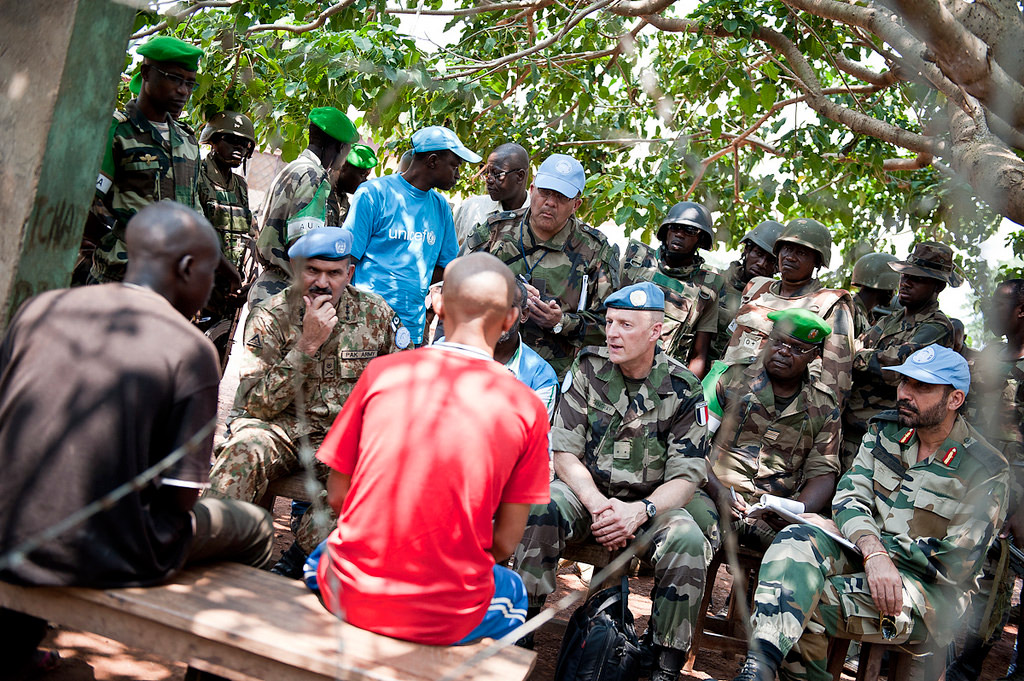Central African Republic: UN deplores death of protestor following attack against Mission base
The United Nations Mission in the Central African Republic, known by its French acronym MINUSCA, has deplored the death and injuries resulting from a mob attack against its base in the city of Kaga-Bandoro – the second violent act of this kind in less than a week.

Ex-Séléka deserters seeking protection from peacekeepers at their base at Kaga-Bandoro in the Central African Republic (CAR) on 6 July 2014.
In a press release issued on 10 April, the Mission reported that UN peacekeepers tried to hold back a mob of some 300 to 400 people as they attempted to break through the barrier of the base’s entrance by setting it on fire earlier this morning.
At the same time, the crowd, armed with stones and knives, hurled projectiles at the ‘blue helmets’ who responded with warning shots. The incident resulted in the death and injuries of a number of assailants.
“MINUSCA deeply regrets this incident and has decided to immediately open an investigation to determine the exact circumstances in which a Central African citizen lost his life and others were injured,” the Mission said in the press release in which it also expressed its condolences to the family of the deceased.
“MINUSCA reaffirms its commitment to the population in order to calm the situation.”
More than two years of civil war and sectarian violence have displaced thousands of people in CAR. According to UN estimates, nearly 440,000 people remain displaced inside the country while some 190,000 have sought asylum across the borders.
At the same time, more than 36,000 people remain trapped within the landlocked country in enclaves across the country, hoping to find asylum in neighbouring States. Moreover, the UN Food and Agricultural Organization (FAO) recently reported that some 1.5 million people in CAR remain food insecure amid ongoing hostilities throughout the country and cautioned that the figure was likely to rise should immediate support not be provided.
Source: United Nations
- 301 reads
Human Rights
Ringing FOWPAL’s Peace Bell for the World:Nobel Peace Prize Laureates’ Visions and Actions

Protecting the World’s Cultural Diversity for a Sustainable Future

The Peace Bell Resonates at the 27th Eurasian Economic Summit

Declaration of World Day of the Power of Hope Endorsed by People in 158 Nations

Puppet Show I International Friendship Day 2020

